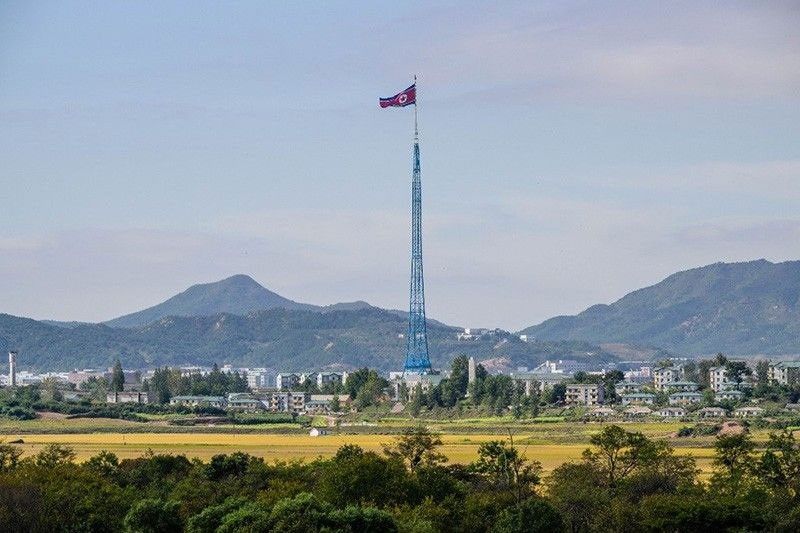No stopping South Korea’s cultural invasion of the North

SEOUL – More than seven decades after an armistice that “ended” the Korean War in July 1953, South Korea appears to be on the offensive – but of the benign kind – against the North.
As South Koreans continue to hope for unification with their unpredictable neighbor and always watchful of their intentions, K-pop, K-dramas and movies are rapidly penetrating homes in the north, providing entertainment and information and unsettling Pyongyang.
A report on North Korea’s economy and society as perceived by 6,351 defectors released by the Ministry of Unification, shows a slow but steady increase in the number of North Koreans getting access to the outside world.
The study, shared with The STAR and other media organizations invited by Seoul, indicates how music, television, movies and other non-traditional sources of information are starting to affect the hearts and minds of people in North Korea.
An official of the Ministry of Unification noted that 36.4 percent of households in North Korea now have mobile phones as compared to only 2.8 percent before 2011.
From 2012 to present, compact disc and digital video disc player ownership in the North also rose from 26.6 percent to 73.6 percent.
Ownership of computers, MP3 players, and Landline telephone lines for the past 14 years has also increased from 1.8 percent to 19.6 percent, 5.6 percent to 30.8 percent, and 7.7 percent to 39.9 percent, respectively.
The report added that 6,351 defectors interviewed said 83.3 percent of them watched foreign video content and that overall interest in the outside world has reached 67 percent from 2016 to 2020. Those who showed interest in foreign videos made up 73.1 percent for the same period.
Interestingly, the Korean Wave is slowly but continuously reaching and influencing North Koreans through technology, including through social media despite restrictions by North Korean leader Kim Jong Un.
The study further revealed South Korean culture started reaching North Korea as early as the 1980 with music, drama series in the mid-1990s, and Korean drama, K-pop, and movies in the early 2000s.
In those days, such materials got to North Korea discreetly in CD formats. Nowadays, they can be accessed secretly through files saved on USBs, an underground trade that appears to be making a lot of profit for daring entrepreneurship.
The official said older people are more interested in South Korean television drama and movies while the younger generation are into Korean pop music.
Kim, in his effort to stop North Koreans from being influenced by the South, has even banned the use of the popular world “Oppa” unless it is used to refer to its original meaning, which is a girl’s older brother.
The word is now being used as a term of affection for a boyfriend. Ko Young Hwan, director of the National Institute for Unification Education (NIUE), said despite the challenges, South Korea will sustain efforts to unite the two Koreas believing that unification will not only mean regional peace but global peace as well.
Education, he said, is key to opening the minds of North Korean defectors like himself which is why unification is being taught in elementary, middle school, high school and even in college.
Defectors, he said, are welcomed in South Korea and are given 400 hours of education in a span of 12 weeks including social adaptation education and are given benefits like financial help of 10 million Korean won, rental/housing fund, employment incentives, educational or schooling benefits even “future happiness account.”
Ko said the number of North Korean defectors has lessened since the COVID-19 pandemic as North Korea also used the time to further isolate itself and tighten its borders.
From January to June this year, only 105 defectors came to South Korea but the government headed by South Korean President Yoon Suk Yeol is hoping for better days and has even declared July 14 of every year as Defector’s Day.
Ko said the NIUE is the only platform that provides unification education. The report, based on the perception of 6,351 defectors, said the situation for the 25 million people of North Korea is getting worse.
The study also showed North Korea’s excessive spending on nuclear and missile development, a collapse in food rations and wages distribution system, increasing extortion and bribery, and the widening of the gap between the rich and the poor.
The study also revealed that skepticism toward the North Korean leadership is growing and is now at 59.6 percent.
Meanwhile, K-pop music continues to play from loudspeakers near the Demilitarized Zone. The “sounds of the freedom program” on radio is also played at full blast near the border.
The STAR was given the rare chance to visit the border but was asked not to take photos in the area including of the four-kilometer land separating the South from the North.
Officials and soldiers note that the popular Korean drama series Crash Landing on You is just a work of fiction and that it is quite impossible for anyone to parachute from the South Korean side to the North Korean border.
- Latest
- Trending

































